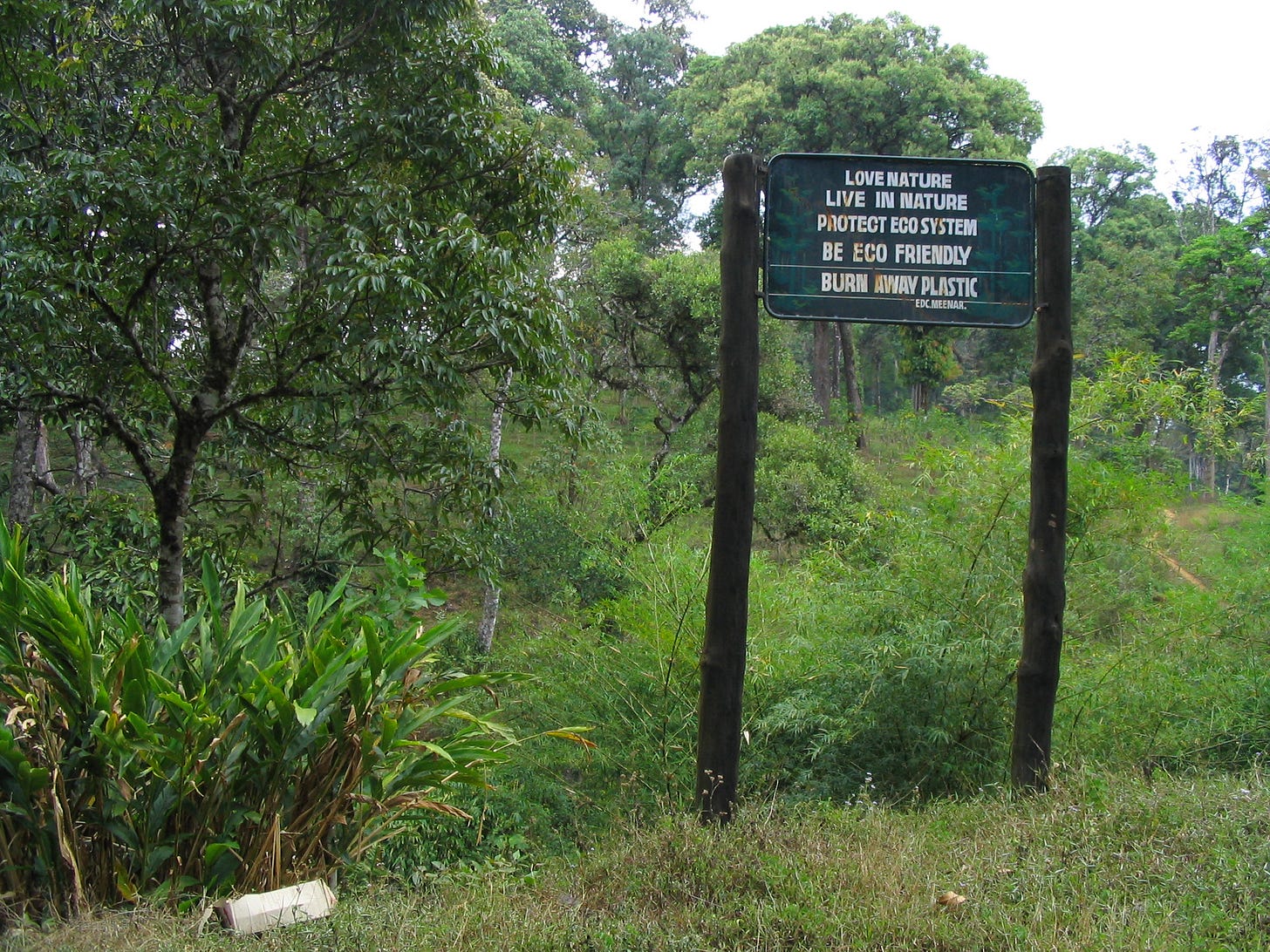#63 Rubbish
Joking about how silly things were in the past with my kids, I was reminded of the milkman that would pass through our street with a horse-drawn cart. This is in the 80s. I watch The Walking Dead, so it’s not the horses that surprise me, but that I remember the cart being operated — in its heyday — by four, five people. That’s about as much as work in our oversized, nearly fully automated supermarket on a weekday night.
While we’ve gotten super efficient at cutting “human waste” (I.e., inefficiency), we haven’t been as good at the other waste. The average European creates half a tonne of waste per year, with the wealthier countries producing most. (Another area where “economic development” proves to be a poor metric.) I thought I was pretty helpful in collecting five to ten kilos of waste from my local streets each week, but I’m not even setting off my own wasteful life.
Europe aims to have a circular economy by 2050. This is far enough away for few to worry about the unimaginable changes this requires in every aspect of our economy and society. It also demands a culture shift on the scale of the shift from self-sustaining small communities in the late 19th century to the globalized consumerism of the early 21st — but in reverse and a fourth of the time.
Transitions of this scale are full of opportunities for entrepreneurial minds. We worked with the collective of SMEs and other businesses in Leiden to place the SDGs at the heart of their vision and ambition, and the circular economy is one of their high-potential focus points. One of my favorite circular initiatives in the city — the Circular Warehouse — is currently presenting at the Dutch Design Week. Their upcycled products turn thrift shop leftovers into Dutch Design. Expensive, but wow!
(I’ve written, in Dutch, about some other initiatives recently for the Dutch platform Duurzaam Ondernemen.)
Waste, rubbish, has been on my mind after last week’s visit to Brussels. I’d been invited by the House of European History to partake in a workshop about their upcoming “Operation Rubbish,” a project looking at Europe’s history and reality of waste. Participants from a dozen or so countries shared their exhibitions and projects about garbage in a cultural setting. It was thrilling to be in Europe’s unassuming capital again for the first time in years and meet fellow European’s from every corner of the bloc.
Rubbish is a very physical expression of cultural shifts and tastes. Not too long ago, humans created no rubbish. And the piles of plastic and other waste today are often the consequence of conscious economic choices. While the milk cart left behind the occasional heap of horse manure, milk came in glass bottles that were endlessly recycled. Now, I throw out multiple bags of plastic each week in the hope it gets recycled.
Rubbish also has many intangible heritage sides to it. Its collection, disposal, finance, and so much more influence how people live and are influenced by their culture in return. Sometimes, this heritage offers solutions. Historically, a “schillenboer” (peel farmer) would collect vegetable waste and old bread to feed farm animals in the Netherlands. Recently, multiple initiatives have sprung up using the same name to collect citrus peels for their oils and other niche products.
On Thursday, I visited the gallery of Bart and Inez, two local artists who use discarded plastic as their material of choice. I loved their bubble plastic jacket and am seriously considering buying it. (Alas, it will be tough for me to overcome my consumerist tendencies.) Interestingly, Bart told me how after working with the waste material for a while, he would grow attached to it and no longer see it as waste. We’ve seen the same in our Time to turn walk, where we invite participants to pick up a piece of plastic. Afterward, some find it hard to let go of this rubbish.
In our transition to a fully circular economy, we can’t do without stories and creative new perspectives.
Thanks for reading, subscribing, sharing. You rock! I know I’m putting the irregular back in regular, irregular updates. It’s a holiday now, so I should be better. Lots to say, we’ll talk soon! Until then, take care,
— Jasper


